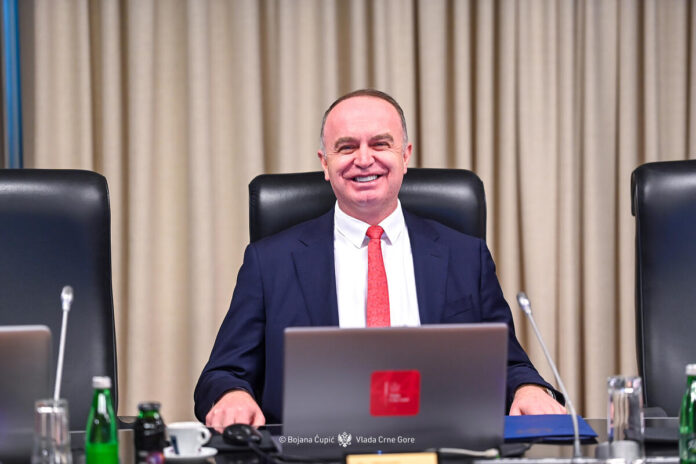Đeljošaj Leads the Coordination Body for Monitoring and Analyzing Product Price Trends
The government has established a Coordination Body for Monitoring and Analyzing Product Price Trends, which will be led by Minister of Economic Development, Nik Đeljošaj.
Following today’s session, the Government announced the formation of a Coordination Body tasked with overseeing and analyzing price trends for products essential to public health and well-being, as well as market supply, while also proposing measures to mitigate the effects of rising prices on these goods, under the leadership of Gjeloshaj.
It has been noted that the current economic and market conditions are resulting in a noticeable rise in the prices of products crucial for people’s lives and health.
“To mitigate the adverse effects of inflation and provide adequate consumer protection, the Government has implemented specific measures, which include passing a decision on temporary actions to cap the prices of essential products related to human life and health. This decision restricts retail and wholesale margins on a total of 73 product categories,” the Government reiterated.
They mentioned that new challenges have arisen in this sector, including retail chain boycotts, necessitating ongoing monitoring and analysis of the situation.
“For this purpose, it is essential to create a Coordination Body that will thoroughly assess the situation and recommend appropriate measures to stabilize the prices of basic goods in the marketplace,” the statement indicates.
Additionally, the Government has approved regulations concerning the conditions and procedures for claiming exemptions from import duties.
It was further explained that the adoption of the Customs Law on July 30, 2022, necessitated a new regulation to better define the criteria and processes for claiming exemption from import duties, thereby enhancing the regulatory landscape in this domain.
The proposed regulations will facilitate the exemption from import duties for goods imported into Montenegro in alignment with European standards.
“Considering that the existing regulation aligns substantially with European legislation, this new regulation will enhance clarity and resolve any ambiguities identified in practice,” the statement elaborates.
The Government has also announced plans for further technical enhancements to the text of the regulation.
Clarifications have been made regarding the evidence required to support claims for duty exemptions based on international treaties.
“Specifically, alongside the exemption request, the customs authority will require certificates from the state administration authority responsible for the project area, confirming that the goods qualify for duty exemption, thus streamlining the importation of exempt goods,” the Government explained.
Furthermore, a new article has been included to outline the exemption process for goods imported for diplomatic and consular missions and their members, exercising rights under the Vienna Convention on Diplomatic Relations.
“A notable innovation in this regard is the introduction of standardized forms for exemption certificates issued by competent authorities, which will simplify and standardize the process of exercising this right,” the statement concludes.
The Government has also approved information regarding compensation payments to KfW Bank for extending the deadline for accessing loan funds for the Water Supply and Wastewater Treatment Project in the Coastal Region, specifically Phases V and V-2. They accepted correspondence from KfW Bank regarding this extension.
This project is highlighted as a vital infrastructure initiative implemented in Montenegro since 2003 in collaboration with the Government, the German Development Bank (KPW), and coastal municipalities including Herceg Novi, Kotor, Bar, Ulcinj, and Tivat.
The project’s objective, as mentioned, is to enhance water supply and sewage systems in these municipalities to guarantee more efficient water service delivery, improved environmental protection, and the sustainability of tourism facilities.
The project is being pursued in multiple phases funded via credit arrangements with KfW Bank. Currently active phases V and V-2 amount to a total of 64.8 million euros.
“The utilization rate of loan funds from Phases V and V-2 stands at a mere 39.1 percent, indicating significant delays in implementation,” the statement highlighted.
In addition to administrative hurdles and sluggish progress, the project is also grappling with rising costs attributed to inflation and fluctuations in the global construction materials market.
“Moreover, resolving property and legal issues, along with the need for documentation harmonization, complicates matters further, resulting in extended timelines and necessitating additional financial resources,” the statement emphasized.
The Government affirmed that since the project remains ongoing, and the mentioned municipalities have €38.68 million available that has not been utilized within the scheduled timeframe, KfW Bank has consented to extend the availability of loan funds until December 30, 2027.
News


